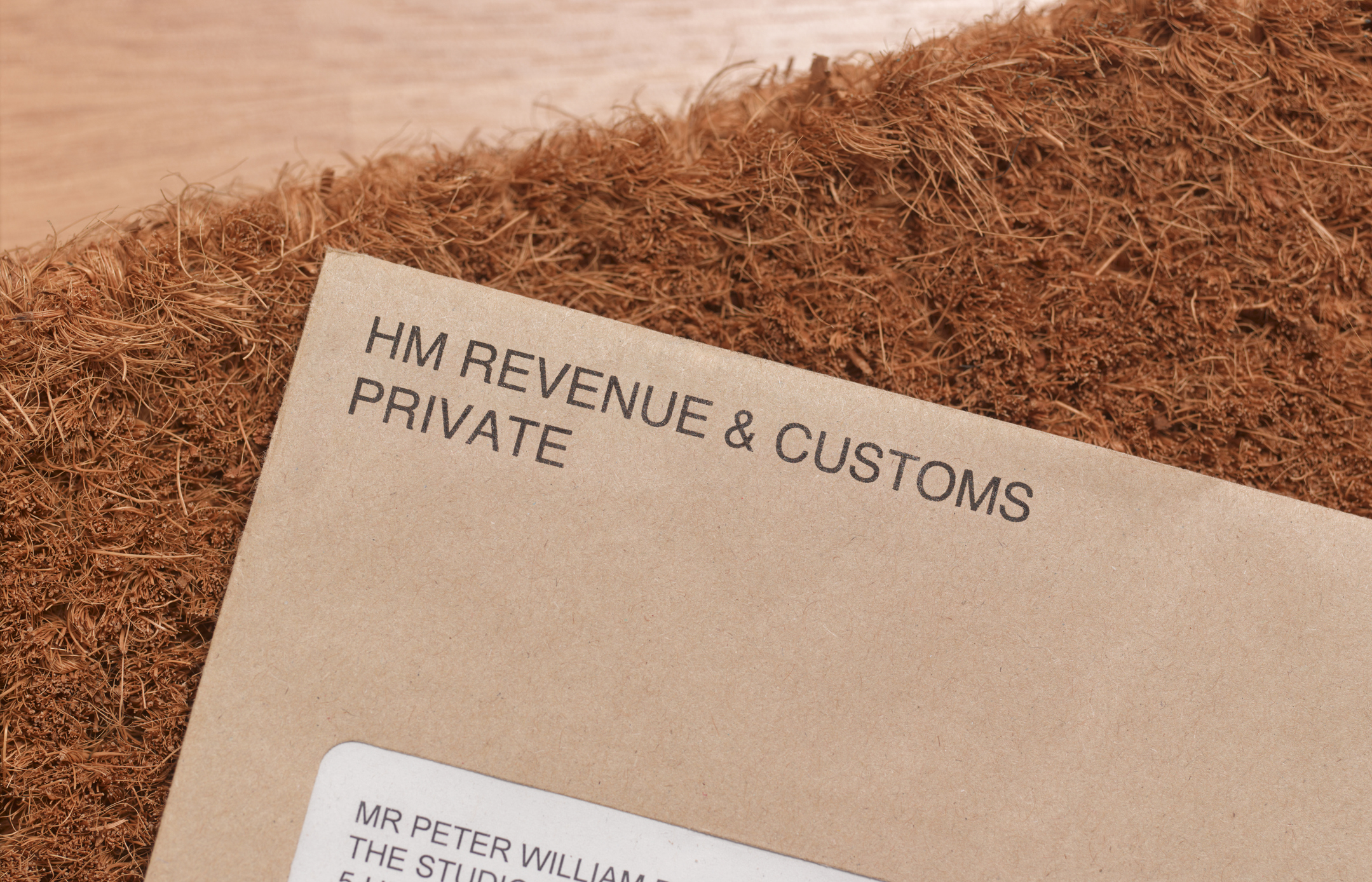Little-known way inheritance tax pension raid could put thousands of businesses at risk – ‘issue is flying under the radar’
Changes to inheritance tax rules could wipe out 15,000 businesses where owners put their premises in their pension, experts have warned


Get the latest financial news, insights and expert analysis from our award-winning MoneyWeek team, to help you understand what really matters when it comes to your finances.
You are now subscribed
Your newsletter sign-up was successful
Want to add more newsletters?

Twice daily
MoneyWeek
Get the latest financial news, insights and expert analysis from our award-winning MoneyWeek team, to help you understand what really matters when it comes to your finances.

Four times a week
Look After My Bills
Sign up to our free money-saving newsletter, filled with the latest news and expert advice to help you find the best tips and deals for managing your bills. Start saving today!
Thousands of small and medium-sized businesses could face forced liquidation after pensions become subject to inheritance tax in two years' time, because of a common retirement plan for entrepreneurs.
Chancellor Rachel Reeves announced in her first Budget last year that unspent pension assets would be included in inheritance tax calculations from April 2027. The reform currently dictates that the pension scheme must itself settle its share of the IHT bill.
But a quirk in many business owners’ retirement planning is that they invested their commercial property – like a business plant or premises – in their pension, as an asset to generate rental income, usually from the business acting as a ‘tenant’.
MoneyWeek
Subscribe to MoneyWeek today and get your first six magazine issues absolutely FREE

Sign up to Money Morning
Don't miss the latest investment and personal finances news, market analysis, plus money-saving tips with our free twice-daily newsletter
Don't miss the latest investment and personal finances news, market analysis, plus money-saving tips with our free twice-daily newsletter
Under the incoming inheritance tax rules, however, on the death of the business owner the inheritance tax bill will have to be settled by the pension scheme, not from the overall estate. So the pension scheme will have to find some way to get cash from the assets in the pension.
This could force a sale of premises or plants, of the business itself or even its closure as a going concern, if the pensions rule change goes ahead as planned. At least 15,000 businesses are likely to be affected, according to analysis by wealth management firm Evelyn Partners.
Gary Smith, financial planning partner and retirement specialist at Evelyn Partners, said: “This could be a serious problem for thousands of small and medium-sized businesses, one that is currently flying under the radar, probably because it’s not widely understood.”
“Owners and directors who don’t take advice or make preparations could fall foul of the new IHT charge, with the end result in some cases that their businesses are liquidated and jobs lost,” he added.
With one in ten company directors in the UK – 620,000 – now working past the state retirement age of 67, according to research by Bowmore Financial Planning, the issue is likely to become a pressing one for many soon.
Bowmore’s research, based on Companies House filings, also shows there are 445,000 company directors over the age of 70, as well as 105,000 company directors working past the age 80.
Inheritance tax bill
Smith has one retired client who owns a commercial property in their pension worth £1.2 million, on which the business tenant pays £100,000 rent a year into the pension for the use of that property.
The client and their spouse use that annual sum to drawdown and live off.
If the chancellor’s inheritance tax proposals are adopted as proposed then after April 2027, on the death of that individual the pension scheme could owe as much as £480,000 in inheritance tax – but all the pension scheme owns is a property worth £1.2 million.
Smith said: “So what happens then? Will the pension scheme be able to borrow money to pay the tax bill, or will the business have to borrow money to buy the property, at high interest rates, and put cash in the pension scheme instead?
“Will the estate be forced to sell the commercial property? Or does the retiree have to stop drawing down the £100,000 a year they planned to live off to build up liquidity to pay a future IHT bill instead and in so doing expand the IHT liability?”
Commercial property in company pensions
Business founders and owners have for years been advised to hold their firm's commercial property in their pension, all completely legal and within the rules.
It could either be put in a self-invested personal pension (SIPP) or a small self-administered scheme (SSAS), typical pensions for the self-employed.
In retirement, they could expect to live off the rental income from their tenant, often their own business, via their pension. They could then pass on assets held in that pension inheritance tax-free to their beneficiaries on death, along with the business itself.
But, said Smith, with the changes coming in from 2027, “on the death of the owner, the business could face the prospect of a disruptive fire sale of their premises to meet a tax bill that could even jeopardise the survival of the firm”.
Business owners could build up a cash reserve within their pension to pay the inheritance tax bill. But this would in itself increase a future tax liability.
Or they could persuade the business to buy back the property out of the pension. “Either of which could involve draining the business of funds and harm investment,” Smith said.
The pension scheme could potentially borrow money to fund the inheritance tax bill as a short term measure until the property can be sold.
The biggest problem, said Andy King, pensions technical specialist at Evelyn Partners, who had discussions with HMRC during the consultation process on the chancellor’s Budget IHT reforms, is “it seems awareness of the issue among the authorities is limited”.
“The danger is that it is dismissed as a minor headache affecting a few business owners, when in fact it could be something much wider and more damaging to family businesses, jobs and local communities,” King said.
Amending the rules so the pensions portion of inheritance tax bills – from April 2027 – could be settled by the overall estate, would help some, but not all.
“The problem would remain for those whose main or sole asset in the pension is a commercial property, as something will probably have to be borrowed or sold to meet the bill – and will that be the firm itself, its intellectual property or customer base?” King said.
Risks of making your business your pension plan
Selling the firm may not be so easy, however. Many directors are struggling to sell their businesses due to a drop in overall M&A activity in the UK, brought on by higher interest rates and slow economic growth, according to analysis by Bowmore Financial Planning.
This leaves owners with fewer opportunities to exit and to generate the money needed to fund their retirement or plan for their loved one's inheritance tax bill or both.
Charles Incledon, client director at Bowmore Financial Planning, said: “Centring your retirement strategy around selling your business can be a very high-risk approach. If it doesn’t pan out as expected, you can easily find yourself working into your seventies – or even beyond.”
Business owners are also facing higher capital gains tax from selling their firms. For additional rate taxpayers, this increased to 14% in April 2025 and will rise further to 18% in 2026.
Incledon added: “Tax rates may increase further before you decide – or are able – to sell your business. Business owners should plan for their personal retirement independently of their plans for their company.”
Get the latest financial news, insights and expert analysis from our award-winning MoneyWeek team, to help you understand what really matters when it comes to your finances.
Laura Miller is an experienced financial and business journalist. Formerly on staff at the Daily Telegraph, her freelance work now appears in the money pages of all the national newspapers. She endeavours to make money issues easy to understand for everyone, and to do justice to the people who regularly trust her to tell their stories. She lives by the sea in Aberystwyth. You can find her tweeting @thatlaurawrites
-
 Should you buy an active ETF?
Should you buy an active ETF?ETFs are often mischaracterised as passive products, but they can be a convenient way to add active management to your portfolio
-
 Power up your pension before 5 April – easy ways to save before the tax year end
Power up your pension before 5 April – easy ways to save before the tax year endWith the end of the tax year looming, pension savers currently have a window to review and maximise what’s going into their retirement funds – we look at how
-
 Pension inheritance tax paperwork nightmare – how to prepare to avoid penalties
Pension inheritance tax paperwork nightmare – how to prepare to avoid penaltiesPensions will be included in inheritance tax calculations from April 2027 and in a shock move, your executors will have to shoulder the burden of finding all your unused pots
-
 Will chancellor Rachel Reeves reverse non-dom inheritance tax changes?
Will chancellor Rachel Reeves reverse non-dom inheritance tax changes?The end of the non-dom tax regime is already causing a UK wealth exodus, data suggests, but chancellor Rachel Reeves may make changes to soften the blow of reforms
-
 Family left with £20k IHT bill because of out-of-date tax advice
Family left with £20k IHT bill because of out-of-date tax adviceFrozen tax thresholds and dated guidance helped drag the estate into an inheritance tax liability despite extensive use of gifting to avoid a bill
-
 Family faces £1 million inheritance tax bill over widespread issue with holiday lets
Family faces £1 million inheritance tax bill over widespread issue with holiday letsMany bereaved families with furnished holiday lets are unable to claim business property relief and have to pay inheritance tax, lawyers say.
-
 HMRC opens 1,000 more inheritance tax probes – what to do if it happens to you
HMRC opens 1,000 more inheritance tax probes – what to do if it happens to youEnquiries into inheritance tax owed have jumped by over a third in just one year, but there has been in a decrease in the proportion of investigations leading to higher bills
-
 Nine ways to reduce your inheritance tax bill
Nine ways to reduce your inheritance tax billThe government has collected a record amount of inheritance tax in recent years – but these steps could help you cut your bill
